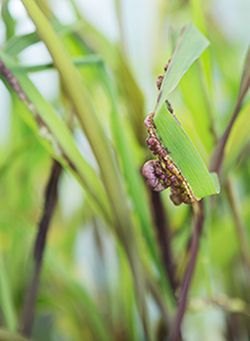The smut fungus Ustilago maydis
Plants host a substantial amount of endophytic microorganisms such as bacteria and fungi. Smut fungi are a wide-spread group of plant pathogens that infect agriculturally important crop plants such as maize or barley. During the major part of their life cycle, these Basidiomycetes grow as endophytes inside the host without causing disease symptoms. Only at late stages of infection they interfere with seed development by producing large amounts of fungal spores replacing individual kernels in maize.
The best characterized smut fungus is Ustilago maydis infecting maize. Its efficient homologous recombination system and the high quality genome sequence allow easy genetic manipulation of the fungi to learn more about the life and infection cycle on the molecular basis. Techniques developed for U. maydis have been successfully transferred to related smut fungi.
Our long term goal is the modification of such endophytes so that they gain novel properties that are beneficial for the plant. This could, for example, include novel synthetic metabolic pathways.
Contribution by Dr. Vera Göhre, Institute for Microbiology, HHU
Planter’s Punch
Under the heading Planter’s Punch we present each month one special aspect of the CEPLAS research programme. All contributions are prepared by our young researchers.
